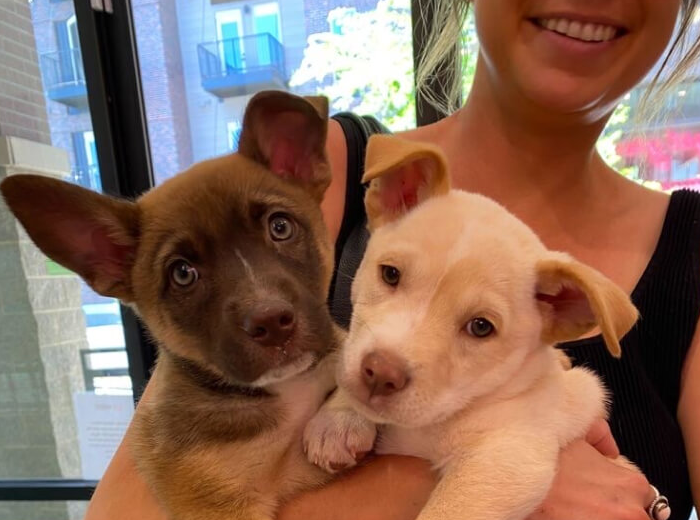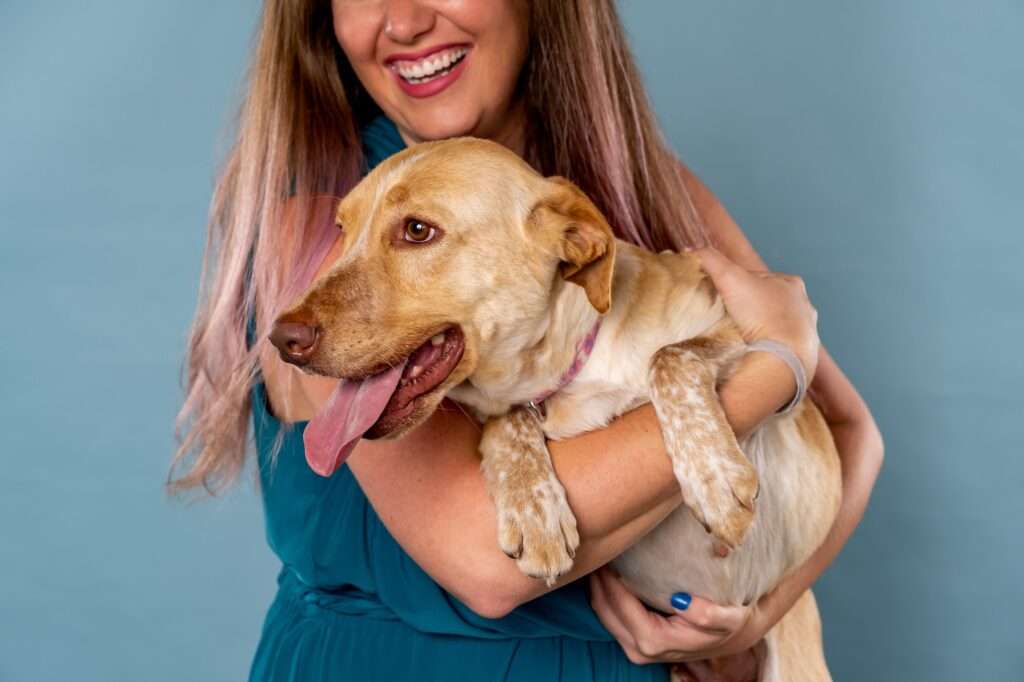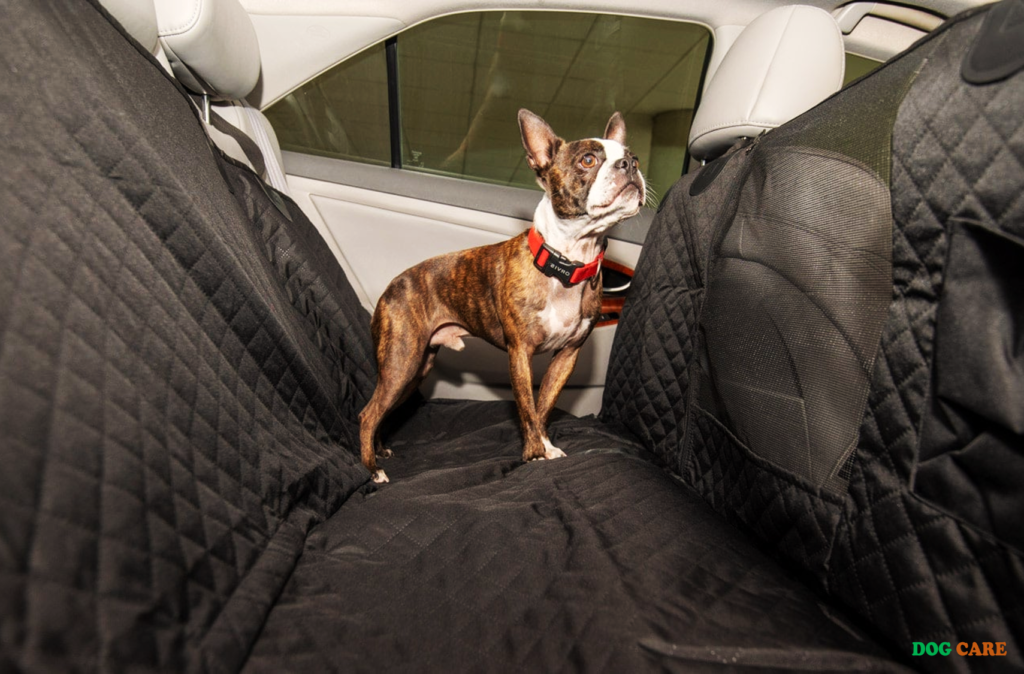What Happens If You Don’t Socialize Your Dog – Not socializing your dog can lead to behavior problems and difficulty in coping with new environments and people. It is crucial to socialize your dog from a young age to ensure they are well-adjusted and able to interact with others harmoniously.
Socialization is a vital aspect of a dog’s development, impacting their behavior and ability to adapt to new experiences. Failing to socialize your dog can result in behavioral issues and an inability to cope with different environments and individuals. With proper socialization, dogs learn to interact positively, making them more confident, calm, and well-behaved companions.
This article explores the consequences of not socializing your dog, highlighting the importance of introducing them to various stimuli early on. By understanding the significance of socialization, dog owners can create a solid foundation for their pet’s mental and emotional well-being, fostering healthier relationships with both humans and fellow canines.

What Happens If You Don’t Socialize Your Dog
The Importance Of Socializing Your Dog
Socializing your dog is an essential aspect of their overall well-being. It involves exposing your furry friend to different people, animals, and environments to help them develop proper social skills and behavior. Whether you have a young puppy or an older rescue dog, socialization plays a vital role in their physical and mental growth. By introducing your dog to various social situations, you are enabling them to become well-adjusted, confident, and happy companions. In this article, we will explore the benefits of socializing your dog and the negative consequences that may arise if you fail to do so.
The Benefits Of Socializing Your Dog
Socializing your dog from an early age provides numerous benefits that contribute to their overall development and happiness. Here are some significant advantages of properly socializing your furry friend:
- Improved Behavior: When dogs are properly socialized, they learn how to interact with people and animals in a calm and controlled manner. This exposure helps reduce the likelihood of aggressive or fearful behavior in social situations.
- Increased Confidence: Socializing your dog allows them to gain confidence in new environments and with unfamiliar people and animals. This helps them feel secure and relaxed, reducing anxiety or fear-related issues.
- Better Adaptability: A well-socialized dog is more adaptable to different situations, such as visits to the veterinarian, outings at parks, or encounters with strangers. This adaptability makes day-to-day activities smoother and less stressful for both you and your furry friend.
- Enhanced Bonding: Socializing your dog creates opportunities for shared experiences, strengthening the bond between you and your four-legged companion. You can explore new places, go on adventures, and form a deep connection through positive interactions.
- Positive Mental Stimulation: When dogs are exposed to new experiences, it stimulates their minds, preventing boredom and improving their overall mental well-being. A well-socialized dog is more engaged, curious, and eager to learn, making training and enrichment activities more effective.
The Negative Consequences Of Not Socializing Your Dog
If you neglect to socialize your dog, you may encounter some negative consequences that can impact their behavior and quality of life. Here are a few potential outcomes of inadequate socialization:
- Fear and Anxiety: Dogs that are not properly socialized may develop fear and anxiety towards unfamiliar people, animals, and environments. This fear can manifest as aggression, excessive barking, or withdrawal.
- Aggressive Behavior: The lack of exposure to different social situations can lead to the development of aggression in dogs. Without proper socialization, dogs may exhibit territorial behavior, overreact to perceived threats, or become reactive towards unfamiliar people or animals.
- Difficulty in Handling: Dogs that haven’t been socialized may struggle with being handled or examined by veterinarians, groomers, or other professionals. This can result in stress for both the dog and those providing care.
- Poor Adaptability: Dogs that are not socialized often struggle with adapting to new experiences, making everyday activities challenging and stressful. Simple tasks like walking on a leash, meeting new people, or encountering other animals can become overwhelming and lead to unruly behavior.
- Isolation: When dogs are not adequately socialized, they may become isolated and withdrawn. Without exposure to positive social interactions, dogs may struggle to form bonds or interact comfortably with other animals and people.
Signs Of Poor Socialization In Dogs
Poor socialization in dogs can lead to various issues such as fear, anxiety, and aggression. Without proper exposure to different people, animals, and environments, dogs may struggle to adapt and interact in a healthy manner, potentially hindering their overall well-being.
It is crucial to prioritize socialization to ensure a balanced and confident canine companion.
Fearful Behavior
When a dog is not properly socialized, it may demonstrate fearful behavior in various situations. Fearful dogs are naturally afraid of new environments, people, and other animals. They may tremble, cower, or hide when faced with unfamiliar situations. Fearful behavior is often accompanied by avoidance, which means the dog will try to move away from the source of their fear.
Dogs that haven’t been socialized may become frightened by normal everyday stimuli such as loud noises, strangers, or even simple objects like umbrellas or vacuum cleaners. This fear can cause a dog to become hypersensitive and reactive, leading to potential issues with aggression or anxiety. Identifying and addressing fearful behavior in your dog is crucial to their overall well-being and can be accomplished through gradual exposure and positive reinforcement training.
Aggression Or Reactivity
Poor socialization in dogs can result in aggression or reactivity towards humans, other animals, or even certain situations. An unsocialized dog may perceive everything unfamiliar as a potential threat, triggering defensive behavior such as growling, barking, or even lashing out with biting.
Aggressive behavior in dogs can be incredibly dangerous and poses a risk not only to others but also to the dog himself. Reactivity, on the other hand, refers to an exaggerated response to certain stimuli, such as lunging or barking excessively when encountering other dogs on walks. This can make it difficult for owners to manage their dogs in public settings and may lead to isolation. It is crucial to address any signs of aggression or reactivity in your dog through appropriate training and behavior modification techniques.
Anxiety And Stress
When a dog is not adequately socialized, they can suffer from significant anxiety and stress. Dogs are social creatures by nature and require appropriate exposure to different environments, people, and animals to feel secure in their surroundings. Dogs that lack this socialization may exhibit symptoms of anxiety such as pacing, excessive vocalization, destructive behavior, or even house soiling. Additionally, a dog’s anxiety and stress can manifest in physical symptoms like restlessness, excessive panting, trembling, or a reduced appetite.
These signs indicate that your dog is experiencing significant distress and should not be ignored. By providing proper socialization and creating positive experiences, you can help alleviate your dog’s anxiety and ensure their emotional well-being. In conclusion, signs of poor socialization in dogs can result in fearful behavior, aggression or reactivity, and anxiety and stress. It is crucial to address these issues promptly through proper socialization, training, and behavior modification techniques. By taking the time to socialize your dog, you are setting them up for a healthy and happy life filled with positive interactions and experiences.
How To Socialize Your Dog Properly
Socializing your dog properly is crucial for their overall well-being and behavior. Failure to socialize your dog can lead to various issues, such as fear, anxiety, aggression, and difficulty adjusting to new situations.
Early Socialization For Puppies
Early socialization is essential for puppies to develop into well-adjusted adult dogs. The critical period for socialization is between 3 and 14 weeks of age, during which puppies are more open to experiences and learning. It is crucial to expose them to a wide range of stimuli, such as different sounds, sights, smells, and textures. This exposure helps them build positive associations and develop confidence in various environments.
During this stage, it is essential to ensure that the socialization experiences are positive and gentle. Exposing puppies to various people, including men, women, children, and individuals wearing different clothing, can help them become comfortable with different types of individuals. Similarly, introducing them to different animals, both within their species and other species, allows them to develop appropriate social behaviors.
Positive reinforcement is key during early socialization. Rewarding puppies for calm behavior, appropriate interactions, and bravery encourages them to repeat these behaviors. Treats, toys, and praise can be used as rewards to reinforce positive experiences.
Gradual Exposure And Positive Reinforcement
Gradual exposure is vital when socializing dogs of any age. It’s important not to overwhelm your dog with new experiences, especially if they have had limited socialization in the past. Gradually increasing the intensity and complexity of the stimuli allows them to adapt and feel comfortable.
Positive reinforcement plays a crucial role at every stage of socialization. Rewarding your dog with praise and treats when they display desired behaviors, such as appropriate play, calmness, and non-reactivity towards other dogs or people, helps them associate these behaviors with positive experiences. This reinforcement strengthens their social skills and encourages them to engage in positive interactions.
Socialization With Different Environments, People And Animals
Proper socialization goes beyond interactions with other dogs and people. It also includes exposure to various environments, such as parks, city streets, cars, and different types of indoor and outdoor spaces. This exposure helps dogs become more adaptable and less fearful of novel environments, reducing the likelihood of anxiety-related behaviors.
Introducing your dog to different types of people, such as those wearing hats, glasses, or uniforms, as well as individuals of different ages and ethnicities, helps them become comfortable with a diverse range of individuals. It also ensures that they don’t develop fear or aggression towards unfamiliar people.
Socializing your dog with different animals, including dogs of different sizes and breeds, cats, birds, and small animals, helps them learn appropriate social cues and behaviors. Supervised interactions and controlled environments are essential to ensure the safety of all animals involved.

Frequently Asked Questions On What Happens If You Don T Socialize Your Dog
What Can Happen If You Don’t Socialize Your Dog?
Not socializing your dog can lead to behavioral problems such as aggression, fear, and anxiety. It may have difficulty adjusting to new environments, meeting other dogs, or interacting with people. Lack of socialization can also result in a lack of confidence and the inability to cope with various situations.
How Does Socializing Your Dog Benefit Them?
Socializing your dog helps them develop good behavior, adaptability, and confidence. It allows them to become comfortable around people, other animals, and different environments. Socialization helps prevent fear, aggression, and anxiety. It also enhances their quality of life, making them more well-rounded and happier companions.
When Should You Start Socializing Your Dog?
Start socializing your dog as early as possible, ideally during the first three months of their life. This is the critical period when they are most receptive to new experiences. However, dogs of any age can benefit from socialization, and it’s never too late to start.
Always consult a professional trainer for guidance.
Conclusion
Neglecting to socialize your dog can have serious repercussions. Your furry friend may develop behavioral problems, such as aggression or anxiety, making it difficult to interact with other pets or humans. It is crucial to prioritize socialization from an early age to ensure a well-adjusted and happy companion.
By dedicating time and effort to socialize your dog, you are investing in their overall well-being and fostering a harmonious relationship.


